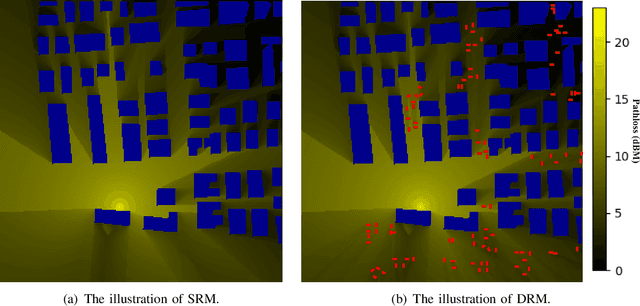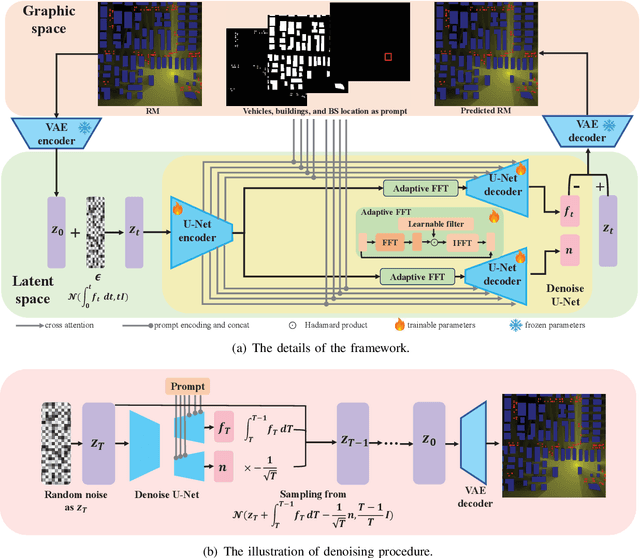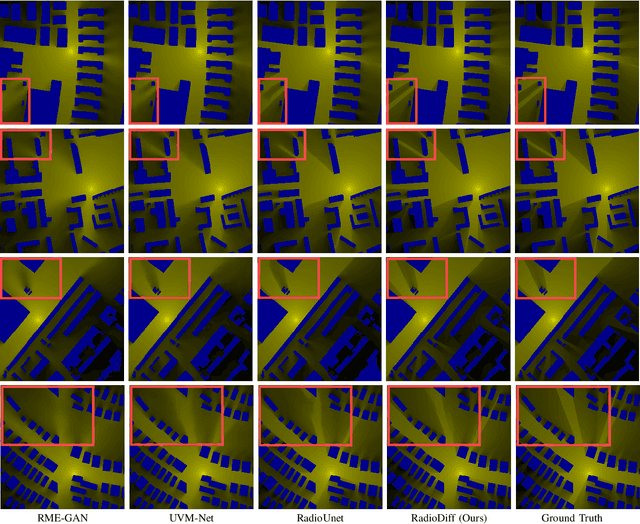RadioDiff: An Effective Generative Diffusion Model for Sampling-Free Dynamic Radio Map Construction
Paper and Code
Aug 16, 2024



Radio map (RM) is a promising technology that can obtain pathloss based on only location, which is significant for 6G network applications to reduce the communication costs for pathloss estimation. However, the construction of RM in traditional is either computationally intensive or depends on costly sampling-based pathloss measurements. Although the neural network (NN)-based method can efficiently construct the RM without sampling, its performance is still suboptimal. This is primarily due to the misalignment between the generative characteristics of the RM construction problem and the discrimination modeling exploited by existing NN-based methods. Thus, to enhance RM construction performance, in this paper, the sampling-free RM construction is modeled as a conditional generative problem, where a denoised diffusion-based method, named RadioDiff, is proposed to achieve high-quality RM construction. In addition, to enhance the diffusion model's capability of extracting features from dynamic environments, an attention U-Net with an adaptive fast Fourier transform module is employed as the backbone network to improve the dynamic environmental features extracting capability. Meanwhile, the decoupled diffusion model is utilized to further enhance the construction performance of RMs. Moreover, a comprehensive theoretical analysis of why the RM construction is a generative problem is provided for the first time, from both perspectives of data features and NN training methods. Experimental results show that the proposed RadioDiff achieves state-of-the-art performance in all three metrics of accuracy, structural similarity, and peak signal-to-noise ratio. The code is available at https://github.com/UNIC-Lab/RadioDiff.
 Add to Chrome
Add to Chrome Add to Firefox
Add to Firefox Add to Edge
Add to Edge